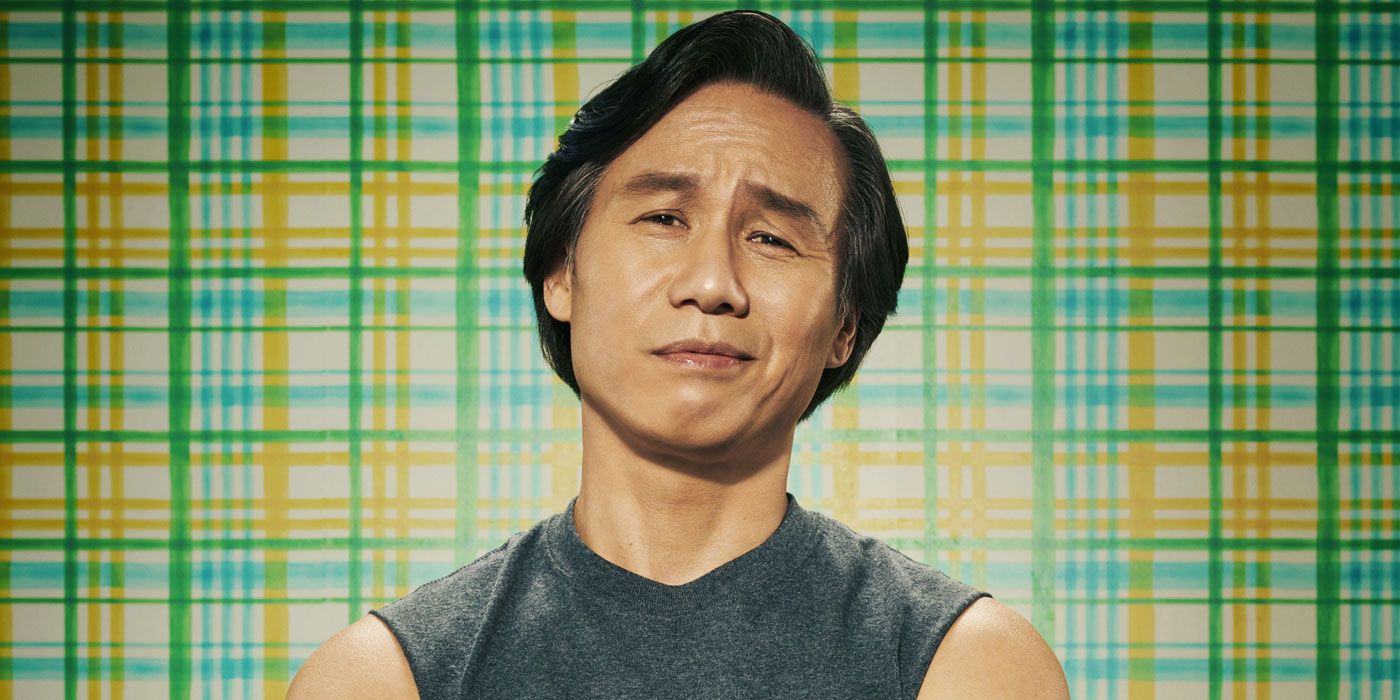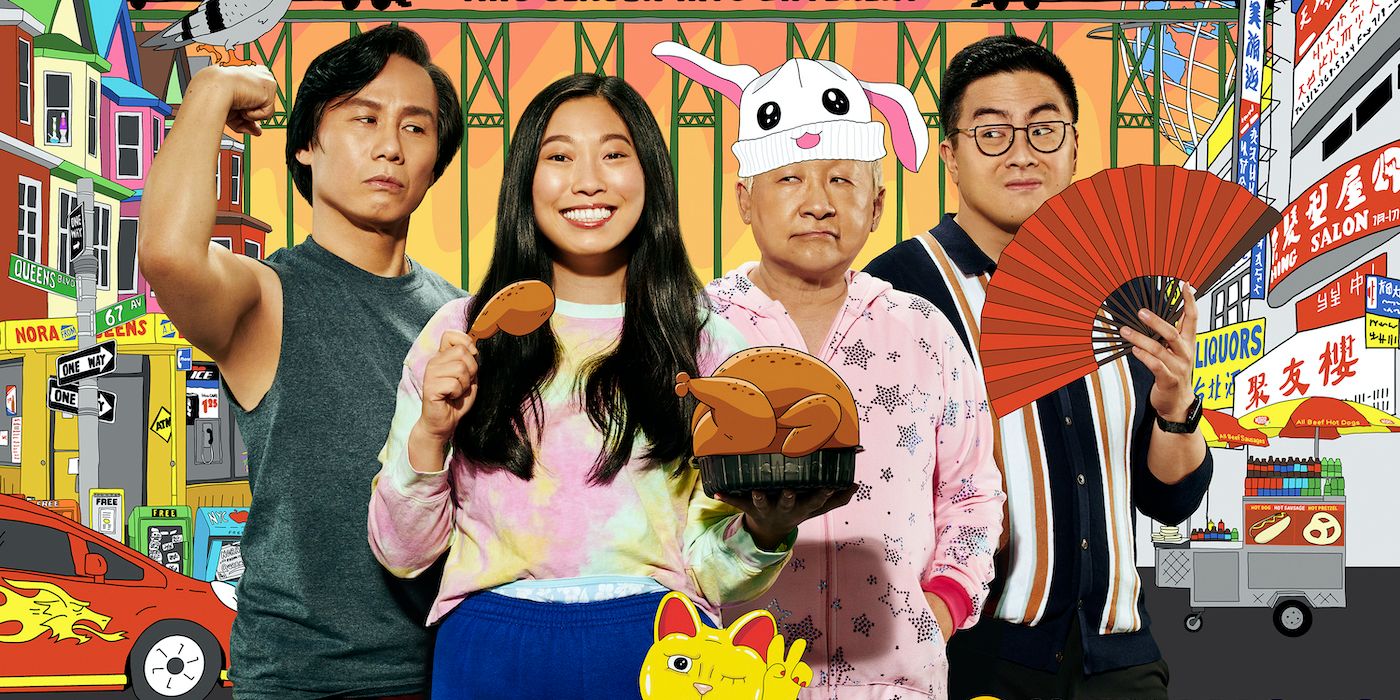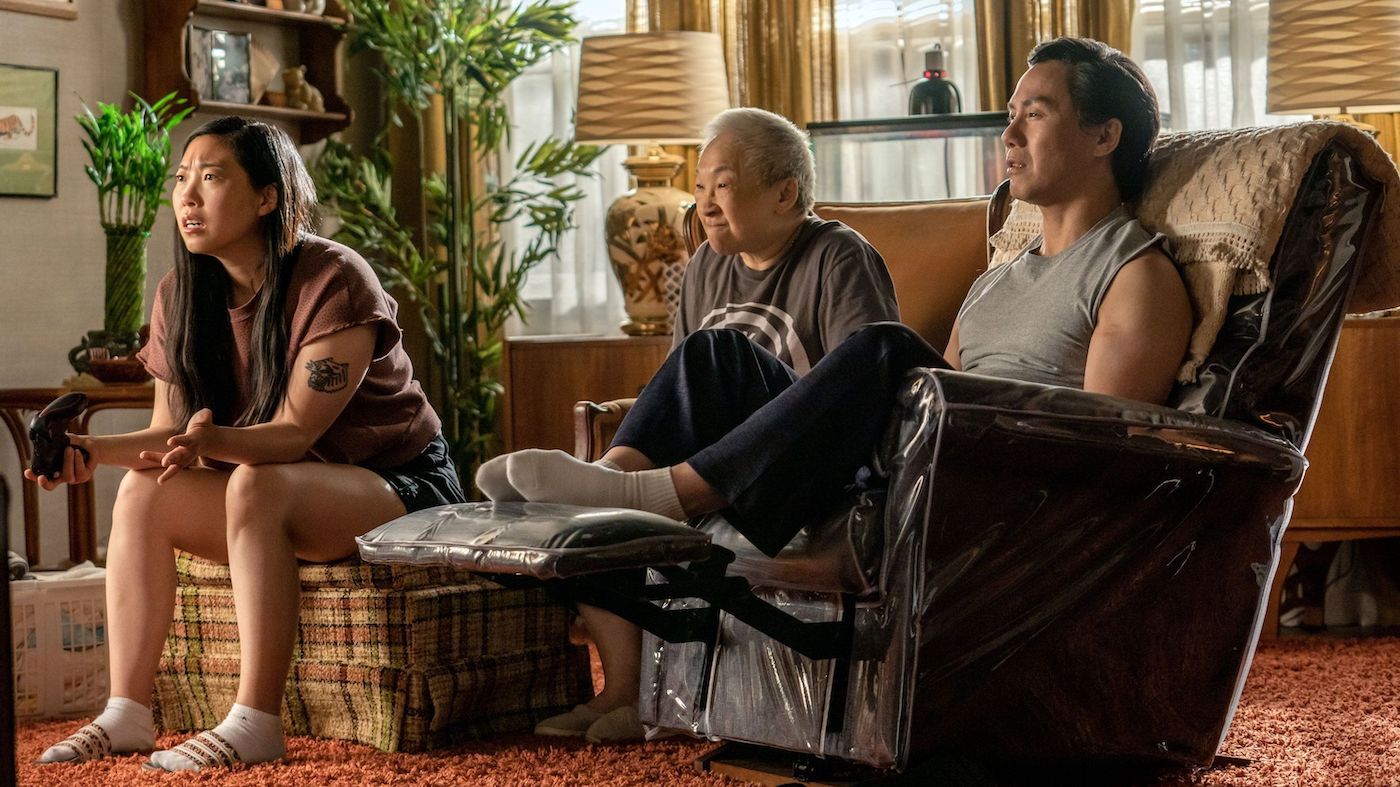In 1994, Tony-winning actor BD Wong was a part of the ensemble cast of All-American Girl, which made history as the first-ever broadcast sitcom about an Asian-American family, centered around comedian Margaret Cho. But the show never thrived, due to network interference, and was canceled after one season.
Now, in 2021, Wong is on a new show starring a young female Asian comedian. But Awkwafina Is Nora From Queens is now launching its second season after the critically acclaimed first one established Awkwafina's dynamic comedic and creative voice, something which is deeply satisfying to Wong, who plays Nora's father Wally in the Comedy Central series, created by Awkwafina and Teresa Hsiao.
In a one-on-one interview with Collider, Wong explained what the key differences were between these two sitcom experiences, what it's like to play the uniqueness of his Nora From Queens character, and what he's looking forward to audiences seeing in Season 2, including the episode he directed and a guest star appearance by Cho. He also talked a bit about how his Jurassic Park character evolved from Dr. Henry Wu's first appearance in the 1993 film to his more developed storylines in the Jurassic World films.
Collider: So I am a fan going back to All-American Girl and I want to start off by asking — and I apologize if this is something you've been asked before — what has the experience of making Awkwafina has been like, in comparison to launching All-American Girl at the time it was launched?
WONG: Well, congratulations. Because this isn't a question that has been asked of me. It is a really good question, because my experience was very different. I have a really interesting perspective, or what I think is interesting, because that experience was a network experience. It was very corporate-driven. There was this young woman, a very vibrant woman who was making her name in comedy at the time in a very similar way that Awkwafina is now, or was when we started the show. And [Margaret Cho] was shoehorned into this prefab sitcom and this mid-90s mechanism that didn't really particularly suit her. And we all struggled with that disconnect.
We also struggled at the time with a lot of cultural issues. There was not a lot of discussion about diversity and inclusion and representation as there is now. There was not a lot of writer-energy or female directors. There was not a lot of stuff that we have now that actually Awkwafina has pressed into service in her show. And so now I see this great contrast to, not only the spirit of the show, the audience's response to this show, but the quality of the show, its importance, its resonance. That show that Margaret did, that I was so excited to be on and really happy to be on, and I always am super proud of it, it was a great experience personally.
But it was a very sad experience in some ways, because it could have been so much better and it could have been and it wasn't... She wasn't allowed to tap into her own essence in the way that Awkwafina actually is tapping into her own essence, because she's a co-creator of the show. So Margaret was put at an extreme disadvantage and she was even put into physical constraints. They had this idea of how she should look and how she should dress and they groomed her and reshaped her, or they tried to... They presented a version of her that really was not her at all. This is my opinion — Margaret herself may have a different way of telling this, but Margaret has talked a lot about this and the number that it did on all of us, but particularly her and so to experience this now is hopeful. And it makes me feel like all of this time, and certainly it makes me well aware that Margaret walked so that so that Awkwafina could run, and that Margaret herself is very proud of that.
I think Margaret really understands that what we did was very important in many, many ways, as a way of breaking the ice and a way of creating a conversation about what could be better about it. And I think that Awkwafina and Teresa [Hsiao], who co-created the show with her, have run with that in a way. So it's really nice to have Margaret as a guest star on the show this year, this season, which is really wonderful. And for that to come full circle in a way, because the support and the mutual support and the mutual love is really, really very great.
That's lovely. And I think you said something that really captures why the show works so well, is that the network does genuinely trust the show to be Awkwafina's show.
WONG: There's no question about it. And it's different. I can tell the difference. I remember standing on the set of [All-American Girl] and there's a live audience, and then they take breaks and they shoot parts of it and then they take a break and then the people in the control room, all talk, and then you wait for someone to come on the mic and say whatever. And then there would be this long pauses and discussions about the sweater that Margaret's wearing and then they'd run down with another sweater for Margaret to put on and it's like, "Let's try that. No, no, let's try another one. That's not quite right." And this idea that you can feel. Nobody ever asked Margaret what sweater she wants to wear.
And here, I walk onto the set of [Nora From Queens] and Awkwafina says, "Oh, what are you wearing? That's not right at all." Because I'm playing her dad, her dad's a real life person. And she's like, "No, you can't wear that. That's not... He would never wear that." And there's this kind of wonderful balance between the creativity of creating a character and then trying to pay homage to this person who really lives, who is a very important person in the main character's life.
Just having Awkwafina be able to look at everything on the set, on the actors, the dialogue, everything. Laughs. Punchlines — and say, "That's not quite what we're going for. This is what the vision is"... Vision is so important. And the vision is pure on this show in some ways, because it comes from two people who are really well-aligned and who are able to spread that concept to everyone else.
And then we all know what we're supposed to do. The other show [All-American Girl] was not like that at all. There was this cloud of questioning everything. Like, "What are we supposed to do? What are we going for?" We ended up going for a rather sanitized, sweet all-American feeling, but not particularly authentic-feeling show. And the Asian community could feel it and was pained by the disconnect there. They saw some things that they recognize, but it didn't feel like a real family to them. And this family is a little bit more like a real family because it's patterned after [Awkwafina's] real family in a way that feels a little bit more organic, where it feels like it's allowed to be a little bit more organic.
By the way, Margaret [was at] no fault in this at all. She was in the experience caught in between these worlds and it was really hard for her, I think. I just always want to say that because I don't want it in my enthusiasm... I don't want to make it sound like I'm blaming Margaret, which I'm not doing at all.
Of course. In terms of Nora From Queens being a family show, what I really like is that it doesn't feel like every other family, it feels unique. Wally in particular has a very different, for lack of a better term, "dad energy," then I feel like we see a lot of on TV.
WONG: I've heard this before and when I was doing it, I never thought that. I thought this feels like how he would be in this situation or... That's so great that that's how it turned out. I never tried to make him different or a different kind of dad or anything like that. He feels to me like a guy who is this age, who is in this experience, who has this daughter, she's a handful and she's lots of things. And he loves her dearly and he's caught between all these aspects of living with her. What she's going to do with her life, who she is, what does her presence mean in his life as he's trying to move on as a long-term widower and all of these things.
And so these things... Maybe it's the writing that supports some kind of reality that is easier to play because there's a foundation of truth to it or something like that. I'm not sure what it is, but it feels just natural to me, it feels like, "Oh, you know," it feels like the questions that you ask at each moment, while you're as an actor, what would he do? How would he do it? They just seem... They're never that hard to figure out, actually.
From your perspective, what's key about that? And I ask this because you have this incredible track record of playing very different characters.
WONG: The key is Nora's vision and Nora's relationship to her dad and her absolute adamant goal of honoring him in a way without letting him off the hook for all of his craziness or weirdness, or the whatever's idiosyncratic about him. Not sanitizing him at all, but saying, "That's my dad and I love my dad and I want him to be happy and proud when he watches the show," which she seems to be, which is such a nice thing. And she cares a great deal about that. She has... I wouldn't call her relationship to him conflicted at all, but I do think that her relationship is real and that at the end of the day, she cares a lot about how his feelings and she respects for a lot what he's gone through in his life and what, in some ways, as a younger person, she's put him through.
And that's really very sweet to see, and I can feel the energy from her whenever I asked her, "Should it be this, or should it be that?" I can feel her choices having to do with how he might perceive it sometimes. And I love that about it. It's very, very wonderful. And that to me is the key because you have an artist and a co-writer and a creator at the helm of it, calling all the shots and this goes from everything to hiring women as directors and department heads, we have more than 50 percent of the department heads in our show are women. And really balancing the score in some ways. We've all heard now the long-term deficit of women being hired in Hollywood and her taking a real leadership role in setting that right.
It's thrilling to be a part of that. Like, "Wow, that's all it really took is to have all these women is to hire these qualified, wonderful, funny, energetic women?" You almost want to say, where did they come from? But you realize that the history doesn't support them being as hired as they should be. And so you have that person in the helm and she's the nucleus or the vortex, the thing that all other things spring from. And I think that's key. It's vision. The key is the vision. That's a long answer to your short question. I'm sorry about that, but I'm enthusiastic about it.
No, that's wonderful. I've done this long enough to know when actors are genuinely excited about the projects they're talking about, and it's always a pleasure to see it.
WONG: Yeah. Here's a lot of stuff about it that's unique to me. As an Asian American, I have a great deal of investment in what it's doing. And I'm never let down by the creators of the show because their agenda seems to be aligned with the one that I would want them... With mine. And so yes, I'm enthusiastic about it on so many different levels, really, I got to direct an episode this season, and that was a great opportunity for me. And so that makes this season a little more special too, because my investment became a little bit more like one of a collaborator. And I'm always feel as a collaborator that I'm able to be a collaborator as an actor. But as a director, there's a different brand of collaboration altogether that I got to experience, which was really, really welcome to me. I really, really found it satisfying.
To wrap things up, I've seen interviews where you've talked a little bit talked about how excited you are to be bringing the character of Dr. Henry Wu back for the Jurassic World franchise. In your head, do you have a backstory to explains what happened with Dr. Wu, between where he was at the end of the original Jurassic Park and then what role he plays in the Jurassic World films?
WONG: Yes. I think he was on a track of advancement and that he was a brilliant, very young geneticist that was fallen, was under the wing of John Hammond. And John had passed away and that inherited this legacy of creation and this technology and these laboratories and stuff, and that he took on this thing and grew it and grew it and grew it and whatever happened after Jurassic Park imploded that's to be debated. What role that plays in the subsequent events, but be that as it may, we found ourselves in Jurassic World with him being the central figure at the very least pushing the technology forward, if not being a co-creator and the whole concept of it.
And so what's more interesting to me is what happens between Jurassic World and Jurassic World: Fallen Kingdom, where he's fallen from grace and he's lost his footing a little bit. But what I will say is that Colin Trevorrow has taken every opportunity that he has to have made the character as three-dimensional as possible — when he really wasn't originally adapted from the book in a very three-dimensional way at all.
Awkwafina Is Nora From Queens airs Wednesdays on Comedy Central.



